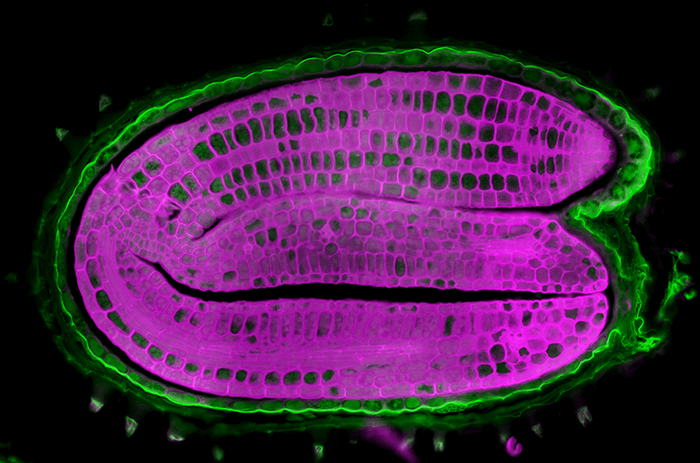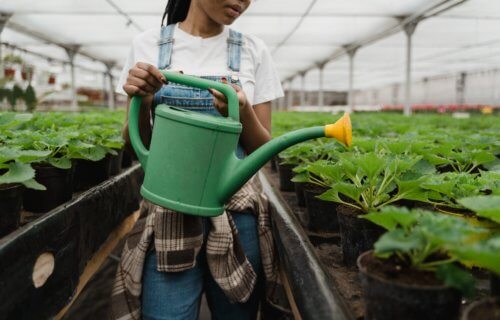GENEVA, Switzerland — Plants possess an internal body clock similar to humans, which dictates when their seeds should germinate — a critical factor for their survival, new research shows. The plants’ internal “thermometer” enables them to stay in a dormant state if the temperature is too high, scientists say.
These findings have significant implications for climate change, especially considering the anticipated need to feed nearly 10 billion people by 2050.
“This trait is expected to have an impact on species distribution and plant agriculture and this impact will be greater as temperatures increase worldwide,” says Professor Luis Lopez-Molina from the University of Geneva in Switzerland (UNIGE), the study’s co-author, in a media release.
The study provides new insights into how weather influences plant growth and could potentially mitigate climate change by optimizing the production of fruits and vegetables.
Seeds, when newly formed, are dormant. While some species awaken within days, others require months. Choosing the correct time to germinate is crucial for their survival, as a temperature difference of just 1.8 to 3.6°F can significantly influence the outcome.
Scroll down to see 9 reasons plants are so vital to Earth’s survival

(credit: UNIGE / Sylvain Loubéry)
The researchers based their findings on experiments conducted on Arabidopsis thaliana, a member of the cabbage family, also known as thale cress. This plant, which bears white flowers and grows about eight inches tall, contains a protein called phytochrome B that acts as a developmental brake.
The scientists dissected the seeds to separate the embryo from the endosperm — the nourishing tissue that also regulates germination. They found that embryos deprived of their endosperm could not halt growth under excessive temperatures, leading to their demise.
“We found that thermo-inhibition in Arabidopsis is not autonomously controlled by the embryo but implemented by the endosperm, revealing a new essential function for this tissue,” says first author Dr. Urszula Piskurewicz. “In other words, in the absence of endosperm, the embryo within the seed would not perceive that the temperatures are too high and would begin its germination, which would be fatal.”
This discovery highlights yet another example of how climatic variations can impact plant biology, influencing factors such as germination and flowering.
The findings are published in the journal Nature Communications.
Here’s why plants are so important for our survival:
- Carbon Sequestration: Plants absorb carbon dioxide (CO2) from the atmosphere and convert it into oxygen (O2) through photosynthesis. This process helps to reduce the levels of CO2, a primary greenhouse gas, helping to mitigate climate change.
- Oxygen Production: Through the process of photosynthesis, plants release oxygen into the atmosphere, which is essential for the survival of most organisms, including humans.
- Soil Erosion Control: Plant roots help to bind the soil together and their foliage protects the soil surface from the impact of rain, thus reducing soil erosion. This ensures the soil remains nutrient-rich and able to support life.
- Water Cycle Regulation: Plants play a vital role in maintaining the earth’s water cycle. They release water vapor into the atmosphere through a process known as transpiration, which contributes to cloud formation and rainfall.

- Biodiversity: Plants form the basis of most terrestrial ecosystems and provide food, shelter, and habitat for a myriad of other species, supporting biodiversity.
- Climate Regulation: Forests and other large areas of vegetation can help to regulate local climates, reducing extremes of temperature and influencing rainfall patterns.
- Air Purification: Plants can absorb harmful pollutants from the air, including particulate matter and volatile organic compounds, thereby improving air quality.

- Mental Wellbeing: Exposure to green spaces has been shown to have significant benefits for mental health and well-being.
- Food and Resources: Plants provide an immense amount of resources including food, medicine, wood, and more.
South West News Service writer Mark Waghorn contributed to this report.

